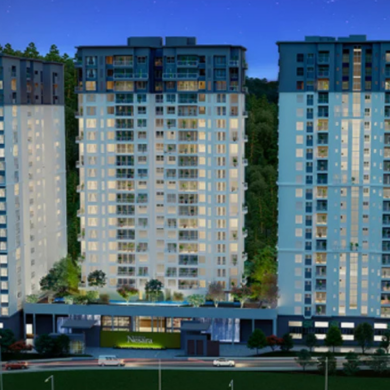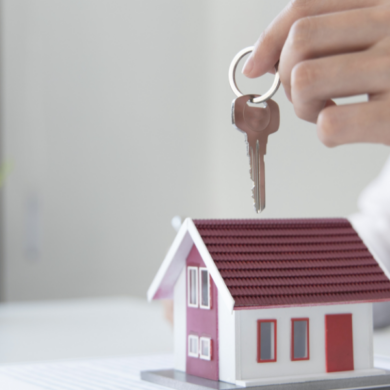
This well-researched blog will enable you to embark on your journey of buying a second home with confidence. Our comprehensive, 14-step guide covers every action point – from financing to understanding the tax implications of a second home.
Buying a second home can provide numerous benefits – such as source of rental income, retreat for relaxation, potential second home investment, and more. However, it also comes with 14 important considerations such as tax implications, loan options, and second home property management.
This blog offers a comprehensive, step-by-step approach – ensuring you are well informed and prepared at each stage of your journey. Whether you are exploring the best locations for a second home or delving into a second home due diligence, this guide will provide the insights and tips you need to take informed decisions.
Table of Contents
14 Steps Guide to Buy Your Dream Second Home
This is a significant milestone in life, that offers a blend of excitement and financial opportunity. Whether you are seeking a vacation retreat, investment property, or future retirement haven, the process involves careful planning and informed decision-making.
This comprehensive blog walks you through the essential steps, from assessing your financial health to managing your new property, ensuring you are well-prepared to make your dream second home a reality. Each step is designed to help you navigate the complexities of this important purchase with confidence & ease.
-
Assess Your Financial Situation
Begin by evaluating your current financial health. Review your income, expenses, debts, and savings to clearly understand your overall financial standing. Assess the feasibility of buying a second home, by considering your budget and how much you can comfortably allocate towards financing this.
Factor in additional expenses such as taxes, maintenance, and insurance for a second home. These expenses can significantly impact your monthly budget and overall financial planning.
-
Define Your Purpose of Buying a Second Home
Determine the primary use of your second home. Are you looking for a vacation property, source of rental income, or your retirement home? Understanding your purpose will influence key decisions, such as the best locations for a second home, the size and type of property you need, and the amenities you should prioritise.
For example, a vacation home may require proximity to leisure activities, while a rental property might need to be in a high-demand area. Clarifying your purpose will guide you through the second home purchase process and ensure your investment aligns with your goals.
-
Research Potential Locations When Buying Your Second Home
Proximity to your primary residence can affect travel time and convenience, while climate may influence your enjoyment of the property throughout the year. Assess the available amenities – such as recreational facilities, healthcare services, and shopping areas – to ensure they meet your needs.
Additionally, analyse the local second home real estate market to understand property values, trends, and potential for appreciation. Popular destinations for second homes often include coastal areas, mountain retreats, and vibrant city locales – each offering unique benefits and experiences.
-
Financing Your Second Home
Explore various options for financing a second home, including savings, loan, or home equity loan. Do note the differences between financing a primary residence and a second home. Lenders may require higher down payments and offer different interest rates for second-home loans.
To secure better loan rates and terms, maintain a strong credit score, shop around for competitive offers, and lock in rates when they are favourable. Be well-prepared and informed about your financing options to confidently handle this crucial aspect of the second home purchase process.
-
Hire a Real Estate Expert when Buying Your Second Home
When buying a second home, working with local real estate consultants is crucial. They have in-depth knowledge of the second home real estate market, including current trends, property values, and the best locations.
To choose the right consultant, look for someone with experience in handling second-home transactions and positive client reviews. Ask them about their familiarity with your desired area, approach to finding properties that match your criteria, and negotiation skills. This ensures a professional can efficiently guide you through the second home purchase process.
-
Start the Property Search
Begin this by conducting thorough research. Use online listings to browse available properties and gather initial information. See properties firsthand and get a feel of the neighbourhood. Evaluate each property based on your defined purpose: vacation retreat, rental income opportunity, or your retirement home.
To ensure the property aligns with your preferences & needs, consider factors such as location, size, amenities, and condition. This detailed approach will help you buy a second home that meets your expectations and investment goals.
-
Conduct Due Diligence Before Buying A Second Home
Performing thorough second home due diligence ensures your investment is sound. To uncover hidden issues and determine the property’s value, start with home inspections and appraisals.
Check property records to ensure no legal issues – such as liens or disputes – could complicate your purchase.Assess the condition and maintenance requirements of the property to understand future costs and upkeep. Careful evaluation can help you avoid potential pitfalls and take an informed decision during the second home purchase process.
Read More – The Pros and Cons of Buying a Second Home
-
Make an Offer
When you are ready to make an offer, employ strategies to ensure it is competitive. Research recent sales in the area to understand fair market value; be ready to offer slightly above the asking price if the market is up. Be prepared to negotiate terms and conditions to find a beneficial agreement with the seller. Including a contingency clause in your offer is crucial, as it allows you to back out if certain conditions are not met, for example financing or inspection results. This clause protects your interests and provides flexibility when buying a second home.
-
Close the Deal
Understanding the closing process is crucial as you approach the completion of buying your second home. This stage involves 7 essential steps:
Finalise the Loan: Ensure your loan details are confirmed and ready for disbursement
Sign Necessary Documents: Carefully review and sign the deed, bill of sale, tax papers, and loan agreements
Transfer Property Title: Ensure the second home is transferred to your name, ensuring legal ownership
Gather Required Documentation: Have proof of insurance, identification, and financial statements ready for the transaction
Understand Legal Procedures: Familiarise yourself with local regulations, fees, and any additional paperwork to avoid surprises
Conduct a Final Walkthrough: Check the property is in the agreed-upon condition, addressing any issues before closing
Address Last-minute Concerns: Before signing the closing documents, resolve any concerns identified during the final walkthrough -
Post-buying Considerations
After buying your second home, focus on installing utilities and services to make the property fully functional. If you plan to rent out a second home, consider hiring a local property management company to handle tenant relations, maintenance, and other responsibilities.
Regular maintenance is needed to preserve the value and enjoyment of your second home. Establish a maintenance schedule for deep cleaning, servicing of plumbing & electrical fittings, and other checks. These post-purchase steps help you enjoy the benefits of owning a second home, while ensuring your investment remains in excellent condition. -
Tax Implications on Buying a Second Home
Understanding this is essential for managing your investment effectively. Owning a second home comes with both tax benefits and liabilities. If you rent out your second home, rental income will affect your taxable income, and must be reported.
However, you might be able to claim deductions on expenses related to renting, such as maintenance, property management fees, and loan interest. Additionally, potential tax deductions and credits can help offset some costs. Consult a professional to address these complexities and maximise your benefits.
-
Insurance Needs While Buying A Second Home
Securing the right insurance for a second home is crucial to protect your investment. Types of insurance required may include homeowners’ insurance, liability coverage, and possibly flood or earthquake insurance, depending on the location.
When comparing insurance policies and providers, consider the coverage limits, exclusions, and premiums. Look for policies that offer coverage at a competitive price. Having adequate insurance provides peace of mind and safeguards your property against unforeseen events.
Tips for Getting the Best Coverage Include:
1. Bundling policies
2. Maintaining a good credit score
3. Installing safety features in your home -
Renting Out Your Second Home
Start by understanding the legal requirements and permissions needed in your area. Compliance with local laws is important to avoid fines or legal issues. Set competitive rental rates by researching similar properties, considering your costs, and finding reliable tenants through online listings, real estate consultants, or rental management services.
You can manage your rental property or hire a property management company to handle tenant screening, rent collection, and maintenance. This ensures your investment is well-maintained and profitable.
-
Preparing for the Future
Planning for the long-term use or eventual sale of your second home is essential. Consider how your needs may change over time and whether the property will continue to meet those needs. Understanding second home market trends can help you decide about holding or selling your property.
Estate planning considerations are also important; ensure your second home is included in your estate plan to effectively manage inheritance and tax implications. This forward-thinking approach helps secure the benefits of owning a second home for you and your future generations.
Conclusion
Buying a second home involves many key steps and considerations. Start by assessing your financial situation, defining the purpose of this home, and researching potential locations. Explore options for financing a second home and ensure thorough due diligence with detailed inspections.
Work with a knowledgeable real estate consultant for invaluable assistance while understanding the second home loan process and tax implications. Once you have found the right property, make a competitive offer. Accordingly, close the deal and consider post-purchase aspects such as insurance and property management.
Final Tips for prospective second-home buyers include:
- Staying informed of the ever-changing trends and latest developments
- Planning for both immediate and long-term use
- Seeking professional advice when necessary
Remember, the benefits of owning a second home can be significant, from personal enjoyment to financial gains.
For further information and assistance, consider these prominent websites:
- 99acres – Comprehensive listings and market insights
- MagicBricks – Real estate services, property listings, and market trends
- Housing – Detailed property search and neighbourhood information
- PropTiger – Real estate research, market reports, and property listings
These resources can provide guidance as you navigate the second home buying process and take informed decisions.
FAQs
1. What are the benefits of owning a second home?
The benefits of owning a second home are personal vacation spot, potential rental income, future retirement home, real estate investment opportunity, tax benefits, and diversification of your asset portfolio.
2. How can I determine if I can afford a second home?
You can determine if you can afford a second home, by assessing your current financial health (including your income, savings, & existing debts), calculating the total cost of owning a second home (including down payment, loan payments, property taxes, insurance, maintenance, and utilities), using affordability calculators, and consulting a financial advisor.
3. What financing options are available for buying a second home?
Financing options for buying a second home are taking a loan, using home equity from your primary residence, or liquidating other assets if you have sufficient savings.
4. How do I choose the right location for my second home?
You can choose the right location for your second home by considering proximity to offices, schools, colleges, shopping & entertainment avenues, amenities in the gated community, real estate market, climate, and the purpose of the home (e.g., vacation, rental, retirement). Research popular destinations and visit potential locations to get a feel of the area.
5. What should I look for in a real estate agent?
Look for a real estate agent with local expertise, experience in handling second home purchases, good communication skills, and positive client reviews. Ask for recommendations and interview multiple people to find the best fit for your needs.
6. What are the key steps in the property search process?
The key steps in the property search process are defining your criteria based on the purpose of the second home, using online listings, scheduling property tours, evaluating each property based on location, price, condition, and potential for appreciation or rental income.
7. Why is due diligence important, and what does it involve?
Due diligence is important as it ensures you take informed decisions and avoid potential issues. Due diligence involves home inspections, appraisals, review of property records, and checking for any legal issues or liens on the property. It is important to understand the property's condition and any potential costs for repairs or improvements.
8. How do I make a competitive offer on a second home?
You can make a competitive offer on a second home by researching recent sales of similar properties in the area to determine a fair offer price, paying high earnest money / booking amount, being flexible with the closing date, and adding contingencies for inspections and financing.
9. What should I expect during the closing process?
The closing process involves reviewing & signing the final paperwork, transferring funds for closing costs, completing a final walkthrough of the property to ensure everything is in order, and officially taking ownership of the property.
10. What are the tax implications of owning a second home?
The tax implications of owning a second home depend on how you use the property. While vacation homes are eligible for loan interest and property tax deductions, rental income is taxable but you can deduct related expenses. Consult a tax professional to understand the tax implications in your case.
11. What types of insurance do I need for a second home?
You will need homeowner's insurance for a second home, to cover the property and liability. If you plan to rent it out, consider landlord insurance. Depending on the location, you could also consider additional coverage for natural disasters such as floods or earthquakes.
12. Can I rent out my second home, and what are the considerations?
Yes, you can rent out your second home, and the considerations are complying with local regulations, obtaining necessary permits, setting competitive rental rates, considering the costs & responsibilities of managing the rental yourself or outsourcing this task to a property management company.
13. How can I plan for the future use or sale of my second home?
You can plan for the future use or sale of your second home by considering your long-term goals for the property – whether it is for retirement, generating rental income, or selling at a profit. Keep an eye on market trends, maintain the property well, and plan for any necessary upgrades. Estate planning can help ensure the property is managed according to your wishes.
14. What are some common mistakes to avoid when buying a second home?
Some common mistakes to avoid when buying a second home are underestimating the total costs, choosing a location that does not fit your needs, skipping due diligence, and not considering future plans for the property. Work with professionals and allot enough time to take informed decisions.









